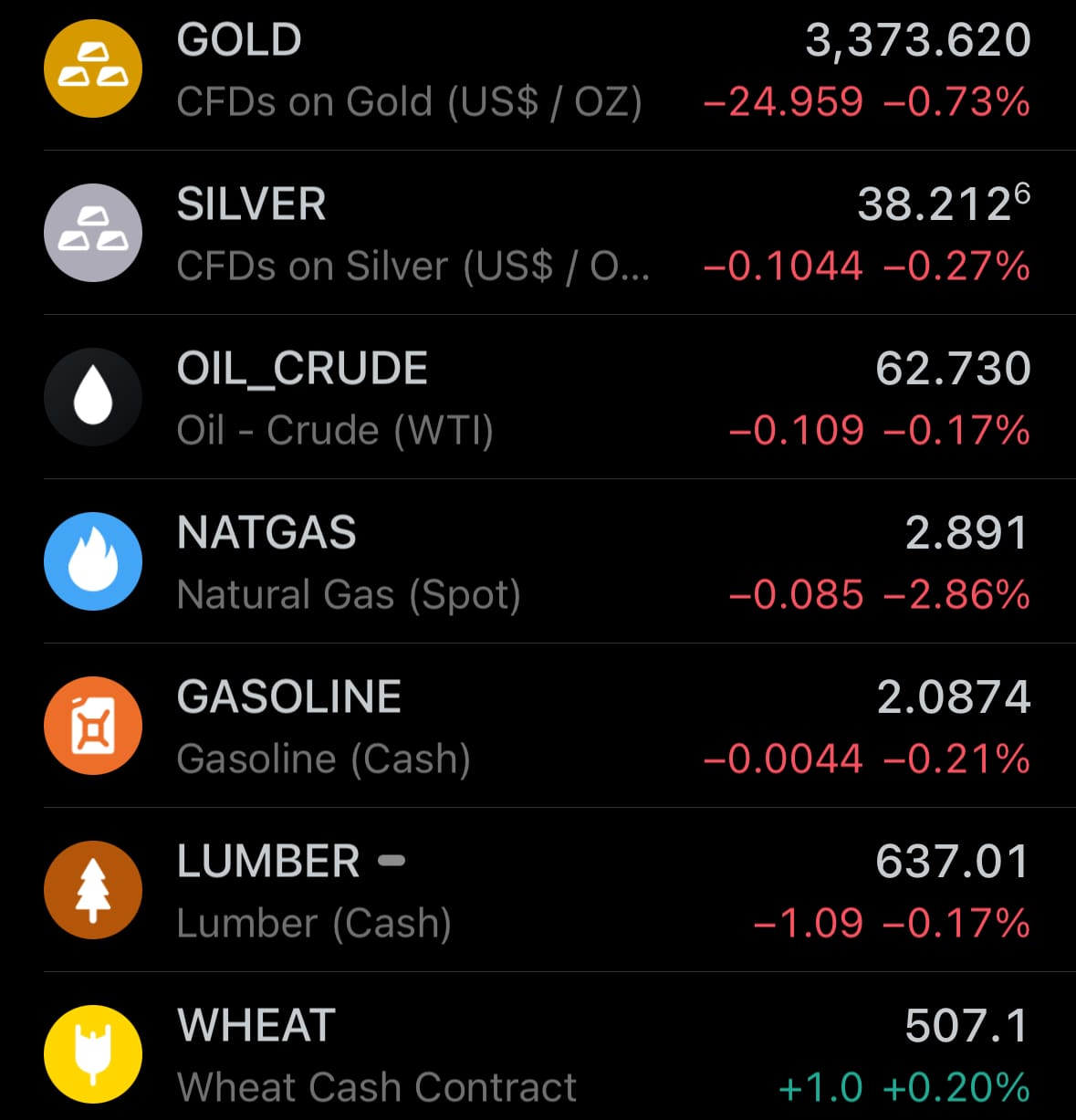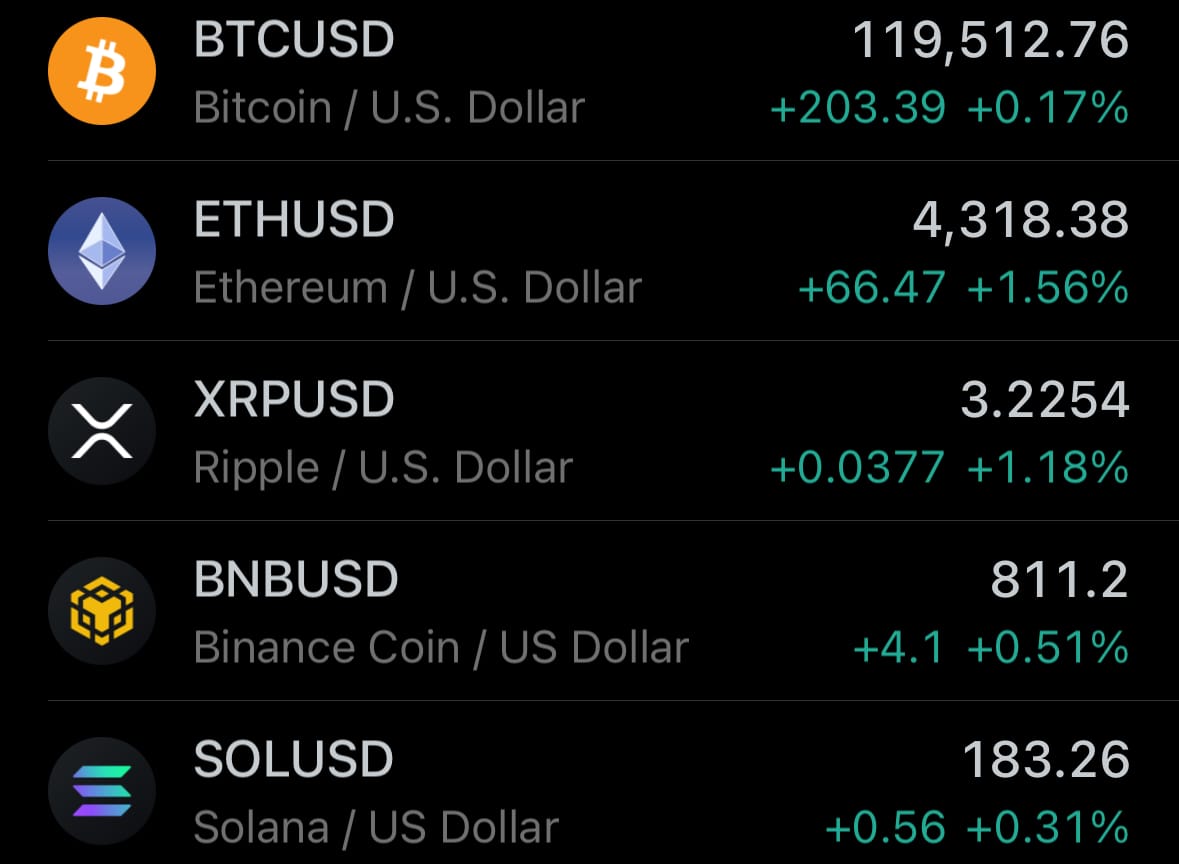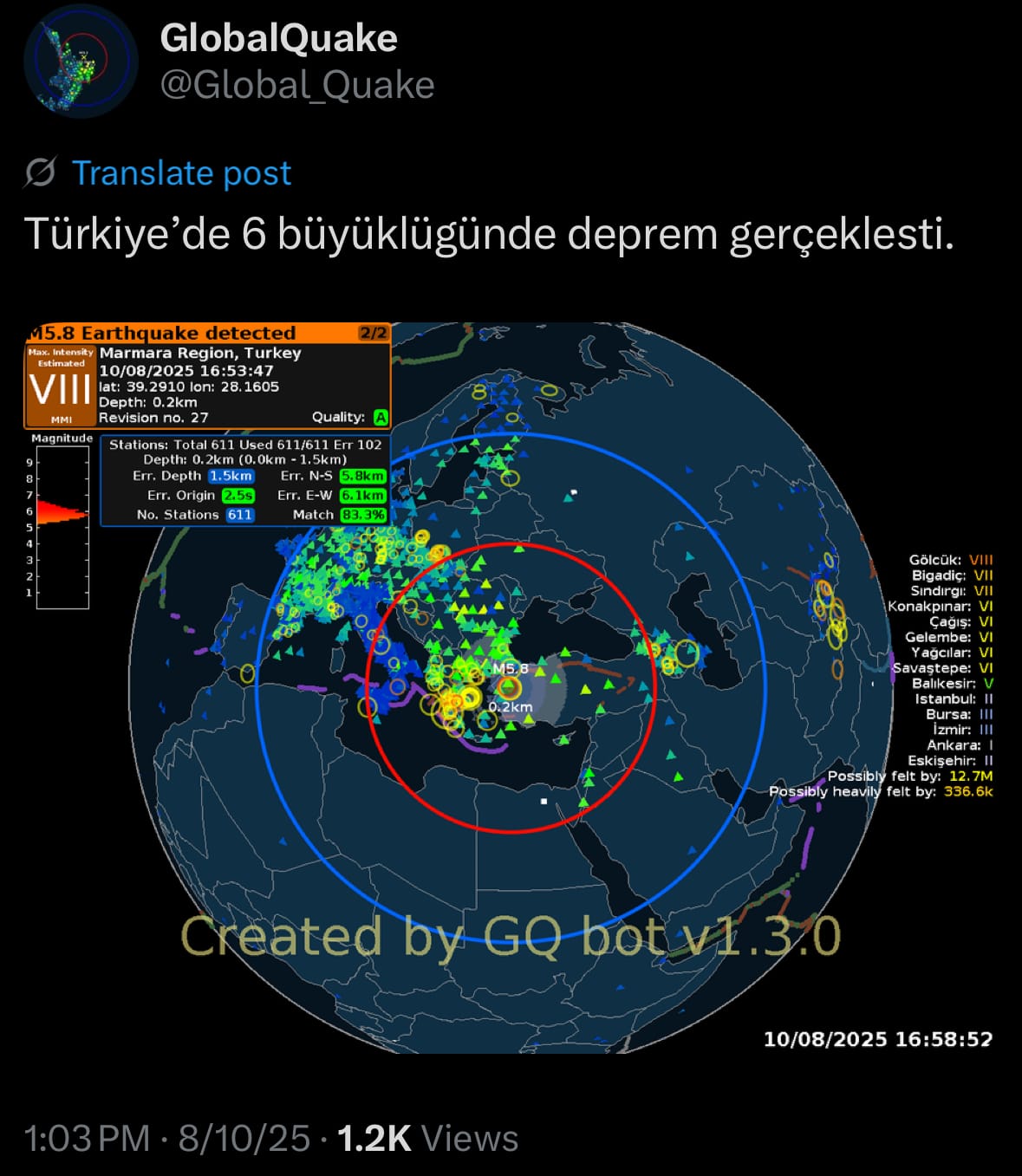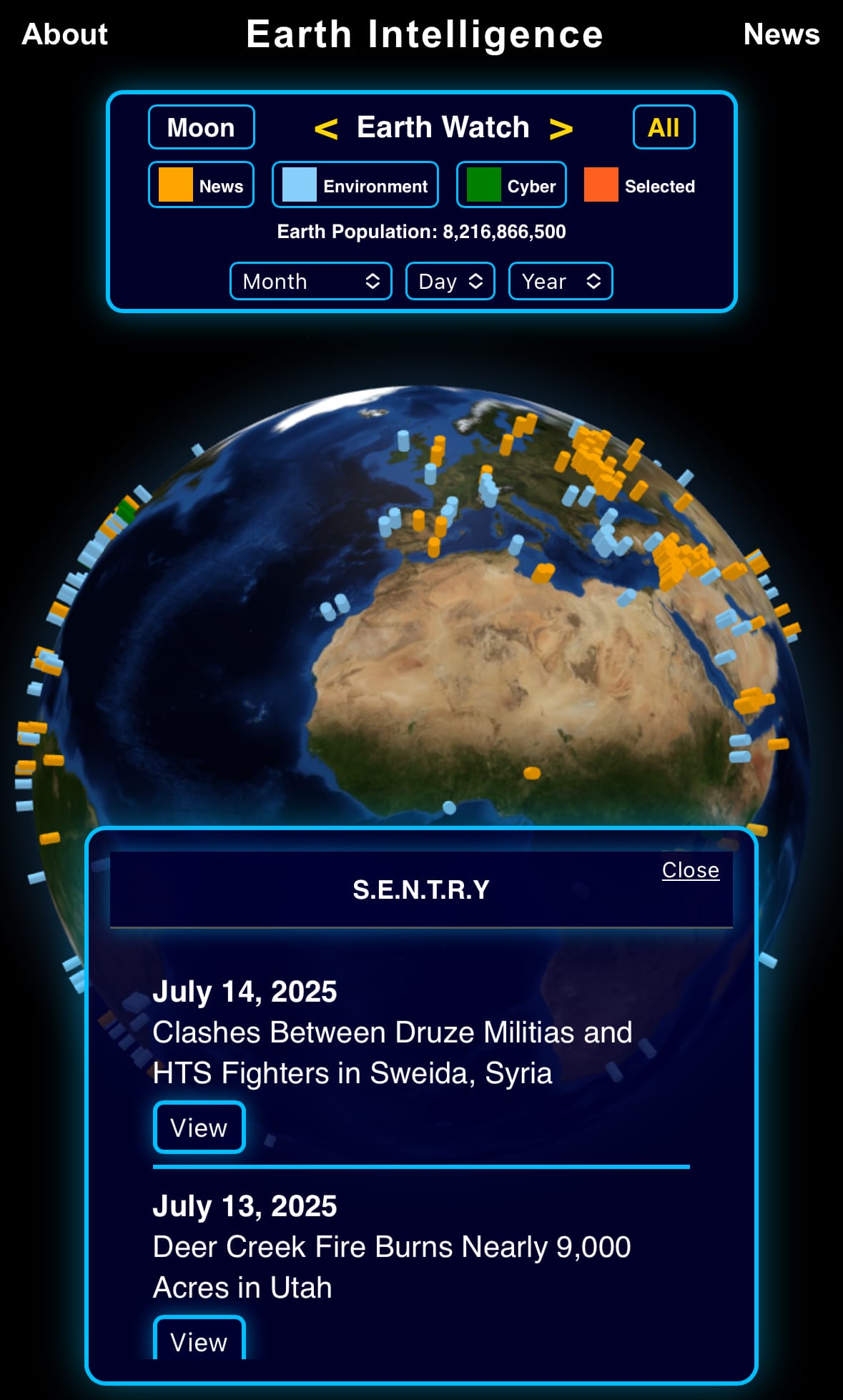Monday☕️

Trending:
- On August 8, 2025, the Trump administration increased the reward for information leading to the arrest or conviction of Venezuelan President Nicolás Maduro from $25 million to $50 million, marking the highest U.S. bounty ever offered for a foreign leader. This step followed allegations of Maduro's involvement in narcoterrorism, including claims that he leads the Cartel de los Soles, an organization reportedly linked to drug trafficking and groups such as Tren de Aragua and the Sinaloa Cartel. The bounty had previously been set at $15 million in 2020 after U.S. indictments on drug trafficking charges, and raised to $25 million in January 2025 following Maduro's inauguration for a new term, which was contested by opposition groups and several countries. At the same time, President Donald Trump authorized military actions against narcoterrorist organizations in Latin America, including those associated with Maduro's government, designating them as terrorist entities and aiming to interrupt drug flows into the United States.
- This represented a shift toward more direct measures beyond previous diplomatic and economic pressures, with Trump citing national security concerns related to alleged state-backed trafficking from Venezuela. Maduro responded with a public statement on state television, saying, "Come and get me... I'll be waiting for you here in Miraflores. Don't take too long, cowards." Delivered from the Miraflores presidential palace in Caracas, his words were presented as a direct challenge to the U.S. actions, portraying them as imperialistic interference. Allies of Maduro, such as governments in Cuba and Nicaragua, supported his position and expressed readiness for any potential escalation, while Venezuelan opposition leaders and international critics saw the U.S. moves as a possible step toward regime change.
Economics & Markets:
- Yesterday’s commodity market:

- Yesterday’s crypto market:

Environment & Weather:
- On August 10, 2025, a magnitude 6.1 earthquake struck western Turkey's Balikesir province, with its epicenter near the town of Sindirgi, about 7 miles southwest of Bigadiç. The quake hit around 7:53 p.m. local time at a shallow depth of roughly 10 kilometers, leading to strong shaking felt in areas as distant as Istanbul, over 120 miles away. Early assessments reported at least one death, approximately 29 injuries, and the collapse of more than a dozen buildings, including homes and a mosque minaret in nearby villages such as Golcuk. Rescue efforts began immediately, with teams pulling several people from debris amid continuing aftershocks, though some individuals were still trapped.

- Turkey's Disaster and Emergency Management Authority (AFAD) advised residents to steer clear of compromised buildings as aftershocks persisted, including one measuring magnitude 4.6. This incident highlights Turkey's ongoing seismic risks due to its location on active fault lines, recalling the severe 7.8-magnitude earthquake in 2023 that caused over 53,000 deaths in the southern region. Although damage was relatively contained compared to previous events, it reinforces the importance of improved building standards and emergency readiness in earthquake-prone areas. Reports from witnesses and social media described widespread alarm, with tremors also noted in neighboring countries like Greece and Romania.
Science & Technology:
- OpenAI released GPT-5 on August 7, 2025, presenting it as the company's most advanced AI model yet, with improvements in reasoning, speed, and multimodal functions that allow processing of text, images, and other data types. It was set as the default in ChatGPT for all users right away, available to free, Plus, Pro, and Team subscribers immediately, while Enterprise and Education accounts were scheduled for access the next week. Free users face a cap of up to 10 messages every five hours, after which interactions shift to a simplified version named GPT-5 mini. Paid tiers offer greater allowances, including unlimited use for Pro subscribers and higher quotas for Plus users, as well as extras like adjustable verbosity in the API and personality customization in ChatGPT. Initial benchmarks and user feedback reflect varied results, with some areas showing performance short of expectations and others demonstrating progress in handling intricate tasks.
- Over the August 8-10, 2025 weekend, OpenAI managed deployment challenges from a rapid demand surge that doubled API traffic on day one and strained capacity, reaching complete rollout by Saturday. In response to reports of issues like bugs in model switching that affected perceived capabilities and the sudden phase-out of prior models such as GPT-4o, the company provisionally increased limits for Plus and Team users to 160 messages every three hours to support elevated activity. GPT-4o access was restored through a legacy setting for paid accounts, model identification was made more visible, and smaller models like GPT-5 mini and GPT-5 Thinking were outlined for post-limit use. CEO Sam Altman stated the rollout proved more difficult than expected, amid online feedback and analysis. The changes aimed to improve system reliability, while observers highlighted them as reactions to early issues, prompting discussions on service consistency and user satisfaction.
Statistic:
- Largest assets on Earth by market capitalization:
- Gold: $23.089T
- 🇺🇸 NVIDIA: $4.456T
- 🇺🇸 Microsoft: $3.880T
- 🇺🇸 Apple: $3.403T
- 🇺🇸 Alphabet (Google): $2.440T
- 🇺🇸 Amazon: $2.374T
- Bitcoin: $2.370T
- Silver: $2.155T
- 🇺🇸 Meta Platforms: $1.932T
- 🇸🇦 Saudi Aramco: $1.555T
- 🇺🇸 Broadcom: $1.434T
- 🇹🇼 TSMC: $1.254T
- 🇺🇸 Tesla: $1.063T
- 🇺🇸 Berkshire Hathaway: $1.003T
- 🇺🇸 Walmart: $827.80B
- 🇺🇸 JPMorgan Chase: $794.01B
- 🇺🇸 Oracle: $702.34B
- 🇺🇸 Visa: $653.66B
- 🇨🇳 Tencent: $653.32B
- 🇺🇸 SPDR S&P 500 ETF Trust: $584.79B
- 🇺🇸 Eli Lilly: $560.86B
- 🇺🇸 Mastercard: $519.19B
- Ethereum: $517.03B
- 🇺🇸 Netflix: $514.85B
- 🇺🇸 Exxon Mobil: $455.31B
- 🇺🇸 Palantir: $443.53B
History:
- Radio technology began to take shape in the late 19th century, building on discoveries in electromagnetism and wireless communication. In the 1860s, James Clerk Maxwell predicted the existence of electromagnetic waves, and in 1886, Heinrich Hertz experimentally proved them, laying the foundation for wireless signal transmission. Innovators like Guglielmo Marconi and Nikola Tesla advanced the field in the 1890s, developing early systems to send telegraph messages without wires. By the early 20th century, radio had evolved from a scientific curiosity to a practical communication tool, with key breakthroughs such as Reginald Fessenden’s first audio broadcast in 1906 and Lee de Forest’s invention of the Audion tube, which amplified signals and made voice and music transmission possible.
- During the 1920s and 1930s, radio rapidly became a dominant medium for mass communication, revolutionizing news, entertainment, and advertising. Commercial broadcasting emerged with stations like KDKA in Pittsburgh, which aired the first licensed broadcast in 1920. As technology improved, radio sets became more affordable, bringing live music, sports, and political speeches directly into homes. During World War II, radio played a crucial role in delivering timely news and propaganda, further cementing its importance in society. Even with the later rise of television and the internet, radio has remained relevant—transitioning into FM, satellite, and internet formats—continuing its legacy as one of the most influential communication technologies in modern history.
Image of the day:

Thanks for reading!
Earth is complicated, we make it simple.
Click image to view the Earth Intelligence System:



Support/Suggestions Email:
earthintelligence@earthintel.newshow




